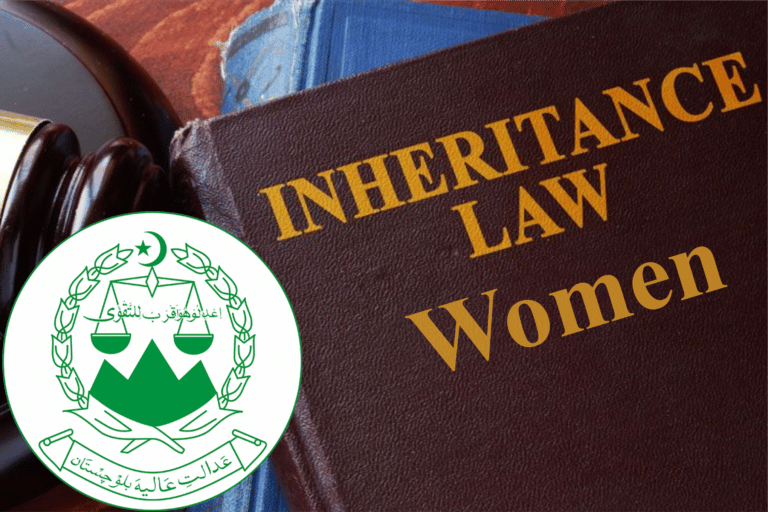The Balochistan High Court has ordered the government to assist women in obtaining their share of the inheritance.
Advocate Muhammad Sajid Tarin filed a petition in the court against women being deprived of their share in inheritance, especially property.
“In most cases, whenever a settlement is made for inherited property, women are conveniently ignored or sidelined from the process,” he said.
A two-member bench, comprising Chief Justice Jamal Khan Mandokhail and Justice Muhammad Kamran Khan, remarked that under Section 498 A of the Pakistan Penal Code, anyone depriving women of their rightful share of inheritance shall be punished.
The law states: “Whoever by deceitful or illegal means deprives any woman from inheriting any movable or immovable property at the time of opening of succession shall be punished with imprisonment for either description for a term which may extend to ten years but not be less than five years or with a fine of one million rupees or both”.
The judges remarked that the government should take the responsibility of ensuring women receive their rightful share.
“The government should also run electronic and digital campaigns creating awareness over the issue, especially among women,” the court said, adding that the law should be taught in schools and colleges as well.
The Director-General of NADRA has been directed to establish a special desk at the revenue office of the relevant district/tehsil for provision of the family tree of the deceased, whose property is either likely to be inherited or settled during the settlement operation to ensure inclusion of names of female legal heirs of the deceased.
The Board of Revenue officials have also been directed to establish a complaint cell at the revenue offices to avoid any unnecessary delay in the process of inheritance and settlement operation and also to eradicate the possibility of illegal gratification.
Chief Justice Mandokhail observed, “Right of female legal heirs have been protected by the Holy Quran and Sunnah, thus, any custom or tradition (Rawaj) contrary to the Holy Quran should not be followed, while recording mutation of inheritance and during the settlement proceedings”.

